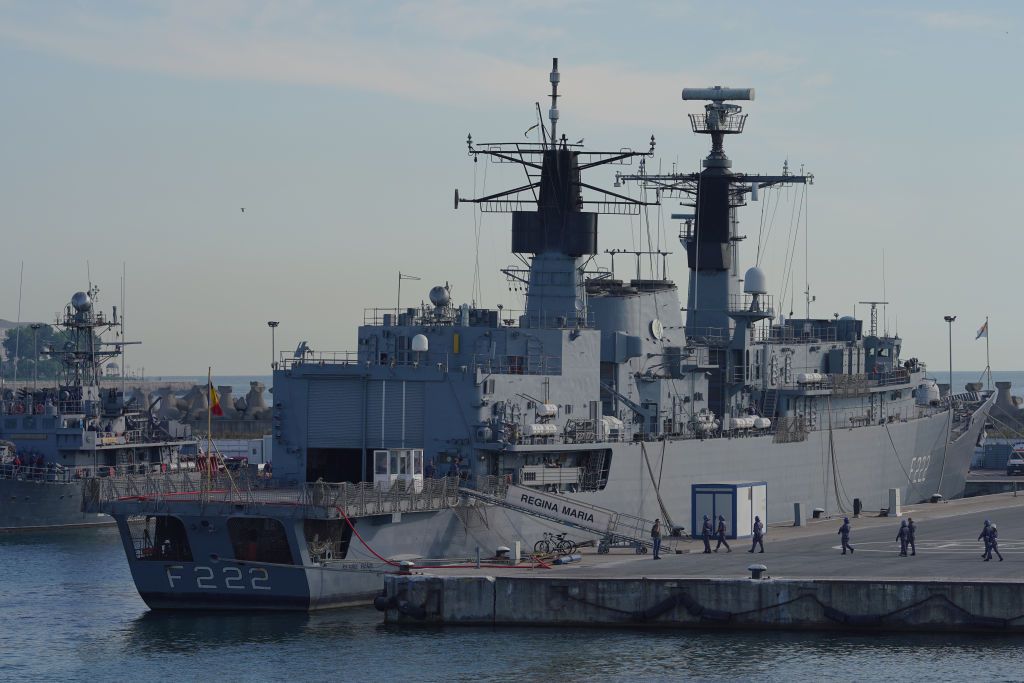Sea Shield 24, a multi-national NATO naval exercise in the Black Sea and Danube River delta, began on April 8 with contributions from 12 alliance members and other partners. This exercise, the second of its kind following the initial one in 2015, aims to address the ongoing Russian full-scale war against Ukraine in the Black Sea. The presence of Russian mines in the Black Sea has become a threat to civilian and navy ships navigating the sea since the invasion began in February 2022. The Romanian navy, leading the exercise, announced that over 2,000 soldiers, 27 ships, 17 planes, and other military equipment will participate, making it one of the largest events undertaken by the Romanian Naval Forces. The goal of the exercise includes combatting illegal sea and river operations, maritime and river control, search and rescue at sea, assisting vessels in distress, and securing critical infrastructure. Participants include NATO members such as the U.S., the U.K., Bulgaria, France, Turkey, and Poland, as well as non-NATO members Georgia Georgia and Moldova. The exercise is set to continue until April 21, with the aim of enhancing maritime security in the region.
In response to the ongoing conflict between Russia and Ukraine, NATO members Turkey, Romania, and Bulgaria signed a memorandum of understanding in January 2024 for a joint mine-clearing task force in the Black Sea. However, the exact timeline for the implementation of this task force remains unclear. The presence of Russian drones conducting attacks has also been reported in the region, with fragments found on Romanian territory following the conflict. This highlights the need for enhanced security measures and collaboration among NATO members and partner countries to address the evolving security challenges arising from the conflict. The Sea Shield 24 exercise aims to strengthen the capabilities of participating countries in responding to such threats and ensuring the security of maritime routes in the Black Sea and Danube River delta.
The Danube River has emerged as an important alternative transit route in response to the Russian naval presence in the Black Sea, providing a strategic pathway for trade and transport in the region. By conducting the Sea Shield 24 exercise in the Black Sea and Danube River delta, NATO aims to demonstrate its commitment to enhancing regional security and stability in the face of ongoing hostilities in Ukraine. The participation of multiple alliance members and partners underscores the collective effort to address common security challenges and protect the shared interests of the participating countries in the region. The exercise focuses on various aspects of maritime security, including combating illegal activities, search and rescue operations, and securing critical infrastructure, reflecting the diverse range of threats faced in the region.
The Sea Shield 24 exercise represents a significant demonstration of NATO’s commitment to supporting the security and stability of the Black Sea region amidst the ongoing conflict between Russia and Ukraine. By bringing together naval forces from multiple alliance members and partners, the exercise aims to enhance coordination and cooperation in addressing shared security challenges in the region. The presence of Russian mines and drones in the Black Sea highlights the need for proactive measures to secure maritime routes and protect vessels operating in the area. By conducting exercises like Sea Shield 24, NATO seeks to build capacity, enhance interoperability, and strengthen the collective defense of its members and partners in response to evolving security threats.
The participation of countries such as Romania, the U.S., the U.K., Bulgaria, France, Turkey, Poland, Georgia, and Moldova in the Sea Shield 24 exercise underscores the diverse range of stakeholders involved in promoting regional security in the Black Sea and Danube River delta. Through joint efforts and cooperation, these countries aim to enhance their capabilities in responding to maritime security threats, including illegal activities and emergencies at sea. The exercise provides an opportunity for participants to exchange best practices, build trust, and foster greater collaboration in addressing maritime security challenges. By working together, NATO members and partners can better protect the shared interests and security of the Black Sea region, contributing to regional peace and stability in the face of complex security threats.















